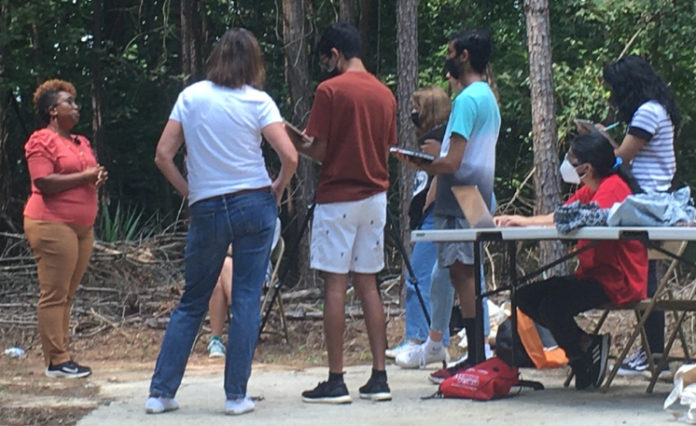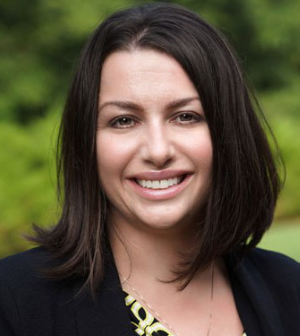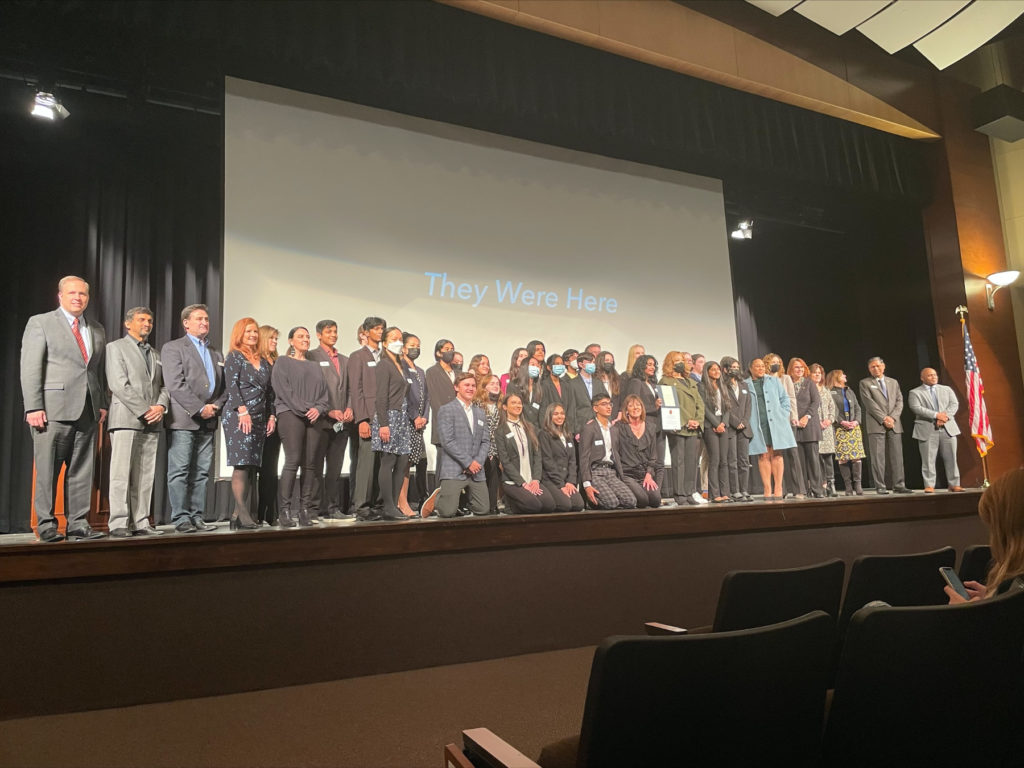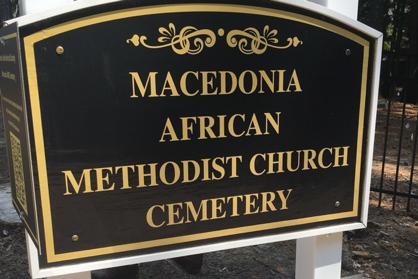
The graves at Macedonia African Methodist Church Cemetery span centuries, but little is known about the people buried there.
Located near one of the busiest intersections in Johns Creek, the small African American cemetery is home to over 100 graves, including those of enslaved people and first- and second-generation descendants of people enslaved on local farms. The earliest marked grave dates to 1893.
In recent years, community groups and the local government have taken actions to preserve and improve the cemetery. But much work remains.
To highlight the importance of preserving the cemetery, teenagers in the Student Leadership Johns Creek program, in partnership with Mercer University’s Tift College of Education and the Johns Creek Historical Society, filmed four short documentaries about the burial ground.
The films cover topics including the historical context of enslavement and racial discrimination; the legacy of the Cherokee Nation and how it intersects with Black residents buried at Macedonia cemetery; the life and family of April Waters, a formerly enslaved resident buried there; and preservation efforts at the cemetery.

Because Johns Creek is a newer city — it was incorporated in 2006 — many people assume it doesn’t have any history. But that’s not true, said Dr. Katherine Perrotta, assistant professor of middle grades and secondary education at Mercer and director of the project, titled “They Were Here: Preservation and Commemoration of the Macedonia African Methodist Church Cemetery of Johns Creek.”
“Getting the awareness out about the Macedonia cemetery and other aspects of Johns Creek history has taught students and adults … that there was actually history there — and not only just history but a diverse history,” she said.
The project was made possible with the help of a $2,500 Georgia Humanities grant. Twenty-six students from four high schools in north Fulton County — Centennial, Chattahoochee, Johns Creek and Northview — started work on the project in August. They interviewed experts and community members, conducted research, filmed video footage, wrote scripts, recorded voice overs and produced each film.
“It was really important for them to engage in that process because we needed to make sure that the narrative that they wrote and disseminated was accurate,” said Dr. Perrotta, who wrote the curriculum for the students. “It was important that they were able to understand the context in which those who are buried there lived. They struggled. Many of them were formerly enslaved folks. Some of them were the descendants of enslaved folks.
“So, it was really important to me and to everybody on the team that they were able to tell the story with historical accuracy and empathy.”
The students premiered their work at a Jan. 27 film screening at Johns Creek High School. Local government officials, school leaders, community members and U.S. Rep. Lucy McBath, who represents Georgia’s sixth Congressional district, were among those in attendance.
“It brought the community together in such a way that perhaps other events might not,” said Dr. Thomas Koballa Jr., dean of the College of Education, who also attended the screening. “This event linked Johns Creek’s present and history, and it highlighted how preserving this cemetery and understanding its history can encourage the community to identify other historical properties in Johns Creek that should be preserved.”
A second screening is planned for 5-7 p.m. Feb. 18 in the second-floor auditorium of the Atlanta Administration and Conference Center on Mercer’s Cecil B. Day Graduate and Professional Campus.
Poorvi Iyer, a junior at Northview High School, was among the teens in Student Leadership Johns Creek. She said she didn’t know much about Macedonia cemetery before working on the project but quickly learned how important it was to people in the Johns Creek community.

“I find this preservation just so, so vital because we have not only so much to learn and to trace back on these individual histories, but we don’t know truly what they did,” she said. “History as a whole has been built from looking at past generations.”
She said she enjoyed researching the history of Macedonia cemetery, finding details and connecting the dots. She hopes the films will positively impact the cemetery’s future, in terms of prompting new legislation to protect it and fostering a greater understanding from the community about its importance.
“It is such a vital and important part of Johns Creek,” she said.

The project gave students a greater understanding of history and brought it to life for them, said Irene Sanders, executive director of Student Leadership Johns Creek. Dr. Perrotta treated the high schoolers like they were college students, which taught them they could handle that level of work, she said.
At a recent Rotary Club meeting, students expressed how much they learned from the project.
“They said they learned so much about how to do research and that they had a genuine respect for doing genealogy work and understanding your family,” Sanders said. “It was really a positive experience.”
One that likely will stick with the students for their entire lives.
“History is, unfortunately, so often taught as a list of facts that students read from textbooks. But creating the documentary films made history come alive for students,” Dr. Koballa said. “I would bet money that if you talk to the students 10 years from now, they will remember the history they learned through creating these films.
“And from a perspective of an educator, you can ask for nothing better than that.”







